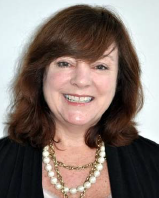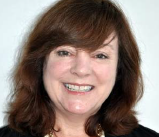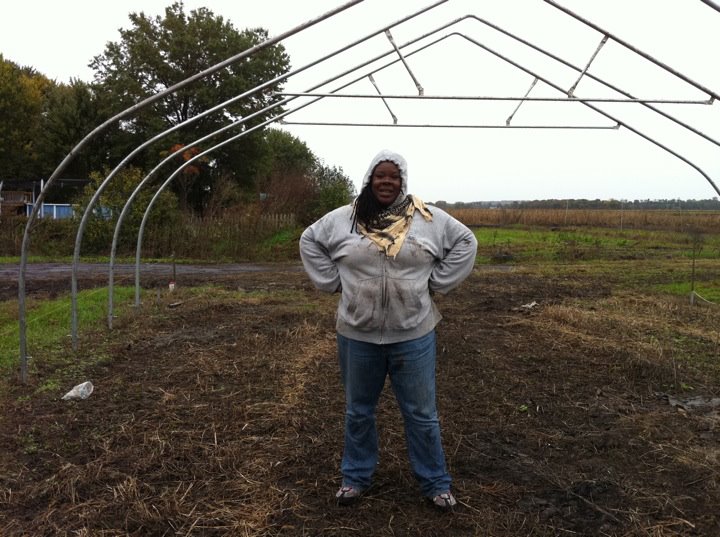Grist is proud to present the Change Gang — profiles of people who are leading change on the ground toward a more sustainable society and a greener planet. Some we’ve written about before; some are new to our pages. Some you’ll have heard of; most you probably won’t. Know someone we should add to the Change Gang? Tell us why.
 When Karen Luken says she feels “blessed” to have had a career in solid waste management, she isn’t joking, even if you can hear the lilt of a laugh behind her words. For 25 years, Luken — currently the global director of the waste management program for the C40 Cities Climate Leadership Group (a partnership with the Clinton Climate Initiative) — has been wrestling with the thorny problem of how best to dispose of all the crap that humans throw away. By her own account, she’s loved every minute of it. She’s making the world a better place, one closed landfill at a time.
When Karen Luken says she feels “blessed” to have had a career in solid waste management, she isn’t joking, even if you can hear the lilt of a laugh behind her words. For 25 years, Luken — currently the global director of the waste management program for the C40 Cities Climate Leadership Group (a partnership with the Clinton Climate Initiative) — has been wrestling with the thorny problem of how best to dispose of all the crap that humans throw away. By her own account, she’s loved every minute of it. She’s making the world a better place, one closed landfill at a time.
Her love affair with waste began in the 1980s, when a scandal emerged over undisclosed uranium emissions at a nuclear weapons plant in Ohio. At the time, Luken was working as an intern for the Ohio congressman whose district included the plant, and she quickly became immersed in the environmental, political, and scientific intricacies of hazardous waste management. The experience, she says, served her well.
“Solid waste is really political,” says Luken. “It’s the one public service that people interact with on a daily basis, and because of that it’s very intimidating for government officials to change solid waste systems.”
In her current job, where she jets across the world helping cities in Nigeria or Mexico or Brazil or Bolivia transition away from massive open-dump landfills that are often within the city limits, being able to understand the big picture is critical.
Landfills in developing nations are often the source of livelihood for workers whose only income comes from picking through garbage and selling reusable bits to garbage brokers. In Jakarta, says Luken, there’s a landfill that supports 10,000 people. Closing such a facility without providing alternate economic opportunities for those workers would be a disaster.
But everything about solid waste management has economic and environmental consequences, explains Luken. There’s a climate change angle: Landfills are sources of vast amounts of methane, a greenhouse gas hundreds of times more potent than carbon dioxide. Organic waste can be diverted to composting, creating healthy soil in countries that are desperate for fertilizer. In areas where electricity prices are high, waste-to-energy facilities can make excellent economic sense.
But there’s no one-size-fits-all solution. Luken cautions that any plan to minimize the amount of waste that ends up in landfill has to take into account what local and international markets for recyclable materials can support.
“Some recyclables, like aluminum, are always valuable,” says Luken. “No matter how the economy is doing, you can always sell your aluminum. But other materials, like fiber and paper, are very dependent on the economy. If we aren’t buying televisions that are packaged in cardboard boxes from China, then China isn’t buying our paper.”
Even though Luken’s work takes place under the larger umbrella of C40 and the Clinton Climate Initiative, she cautions that most of the developing countries that are seeking to better manage their waste aren’t doing it for climate reasons. They’re simply trying to get rid of garbage more efficiently — or to clean up their big cities in advance of showcase events like a World Cup. And as environmental economics researchers have long understood, once you get rid of the stuff that smells or looks bad, it’s much harder to take the next step, and deal with greenhouse gases that are essentially invisible to the general public.
That’s one reason, Luken believes, why the U.S., which has relatively stringent laws on solid waste disposal, has been “coasting” for the last 10 years in terms of making any further progress. Very few innovative new technologies — such as the anaerobic digestion of organic waste by bacteria currently being implemented in Europe — have come online in the U.S. in recent years. “Whenever there is a budget to be cut,” says Luken, “recycling seems to be first up on the chopping block.”
“It’s because we just don’t see it any more,” she says. “We don’t have landfills in our cities. The magic fairies just come in the night and it all goes away.”




